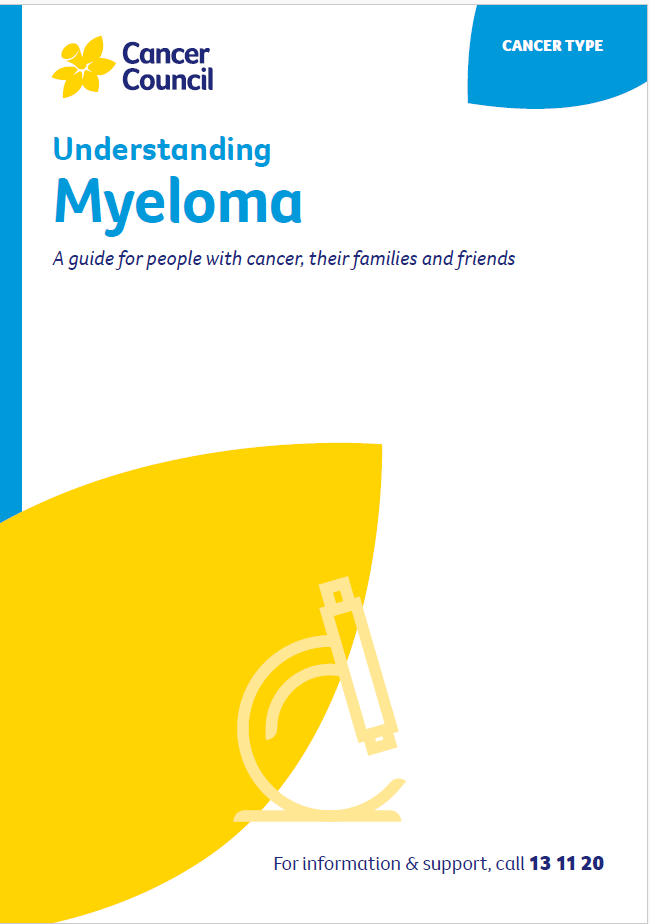Steroids for myeloma
Steroids (sometimes called corticosteroids or glucocorticoids) are hormones made naturally in the body. They can also be made artificially and used as drugs. These drugs modify how the immune system reacts, relieve inflammation, and actively kill myeloma cells.
Learn more about:
How they are given
The typical steroids used for myeloma are dexamethasone and prednisolone. These are usually given with chemotherapy or other anti-myeloma drugs. Steroids are most often taken as tablets but can also be given intravenously. They are usually given in high doses, but for short amounts of time.
Side effects
Common side effects include difficulty sleeping, mood changes, increased appetite, fluid retention, heartburn, infections and weight gain. Take steroids in the morning with food or milk to help with sleep problems or an upset stomach. Some steroids may cause diabetes if used for a long time. Stopping steroids suddenly can cause problems, so talk to your doctor if you want to change your dosage.
→ READ MORE: Stem cell transplant
Podcast: Making Treatment Decisions
Listen to more episodes from our podcast for people affected by cancer
More resources
Dr Ian Bilmon, Haematologist, Westmead Hospital and The Sydney Adventist Hospital (Clinical review); Martin Boling, Consumer; Catherine Bowley, Specialist Myeloma Nurse, Myeloma Australia; Dr Samuel Dickson, Radiation Oncologist, Calvary Mater Newcastle; Rachelle Frith, Clinical Nurse Consultant, Haematology, Prince of Wales Hospital; Dr Wojt Janowski, Haematologist, Calvary Mater Newcastle; Yvonne King, 13 11 20 Consultant, Cancer Council NSW. We would like to thank all the health professionals, consumers and editorial teams who have worked on current and past editions of this title.
View the Cancer Council NSW editorial policy.
View all publications or call 13 11 20 for free printed copies.

